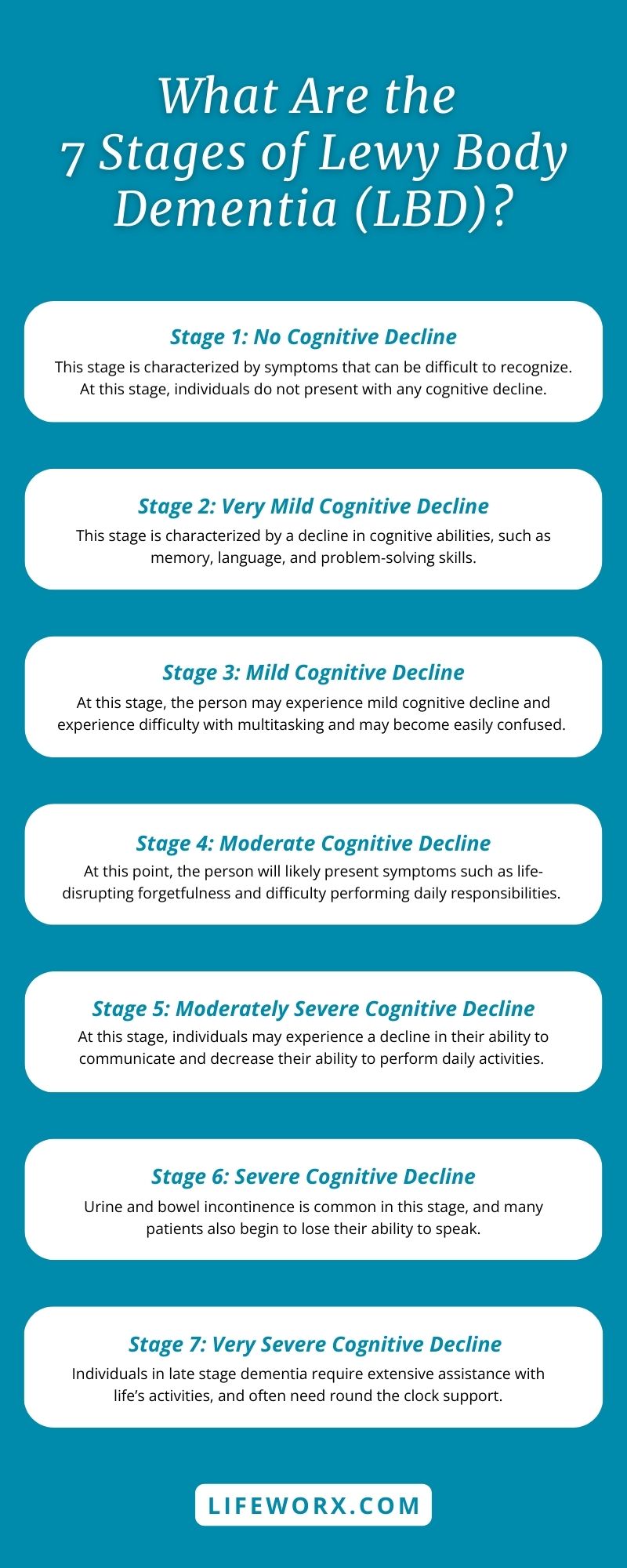
The 7 Stages of Lewy Body Dementia
Lewy Body Dementia (LBD) is a neurological disorder associated with deposits of abnormal protein, called Lewy bodies, that affects about 10-15% of dementia patients. This disease typically progresses in seven stages, each marker by a decline in cognitive and physical abilities.
Symptoms may be mild and difficult to notice in the early stages (1-3) and are often mistaken for normal aging. Patients may experience slight memory lapses, mild confusion, and minor attention and problem-solving difficulties.
As the disease progresses to the middle stages (4-5), symptoms become more pronounced and debilitating. Cognitive impairments may also worsen. Patients may experience memory loss, hallucinations, and motor symptoms like Parkinson’s disease, such as tremors, stiffness, and slowed movements.
In the advanced stages (6-7), individuals with LBD face significant challenges. They often require 24-7 care and support, lose the ability to communicate effectively, experience severe cognitive decline, and exhibit pronounced motor impairments. Additionally, behavioral changes, such as agitation, aggression, and anxiety, are common. They may become bedridden as the disease impacts their physical capabilities significantly.
Understanding the stages of Lewy Body Dementia is informative and crucial for caregivers and healthcare professionals. It can help anticipate patients’ needs and provide appropriate care and support as the disease advances.


















